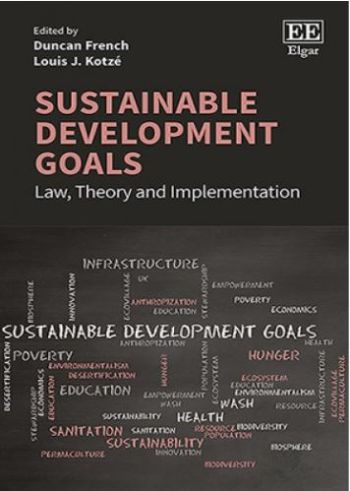
Building on the previously established Millennium Development Goals, which ran from 2000-2015, the 2015 Sustainable Development Goals (SDGs) provide the UN with a roadmap for development until 2030. This topical book explores the associated legal and normative implications of these SDGs, which in themselves are not legally binding. The 17 goals and 169 targets of the SDGs cover areas as crucial as poverty reduction, climate change, clean water and access to justice.
Combining both thematic and goal specific analysis, expert contributors establish the relevance not just of international law, but also of a broader range of normative frameworks including constitutional norms, domestic regulatory law and human rights. Connecting the SDGs to wider debates in international law and politics, this book ultimately demonstrates that law has an important constitutive and instrumental role to play in both implemention and analysis. The first of its kind to offer a specific focus on the relationship between law and the SDGs, this much-needed book will prove invaluable for scholars in the field of international sustainable development. Its insightful observations will also provide food for thought for both related international organisations and national government officials.